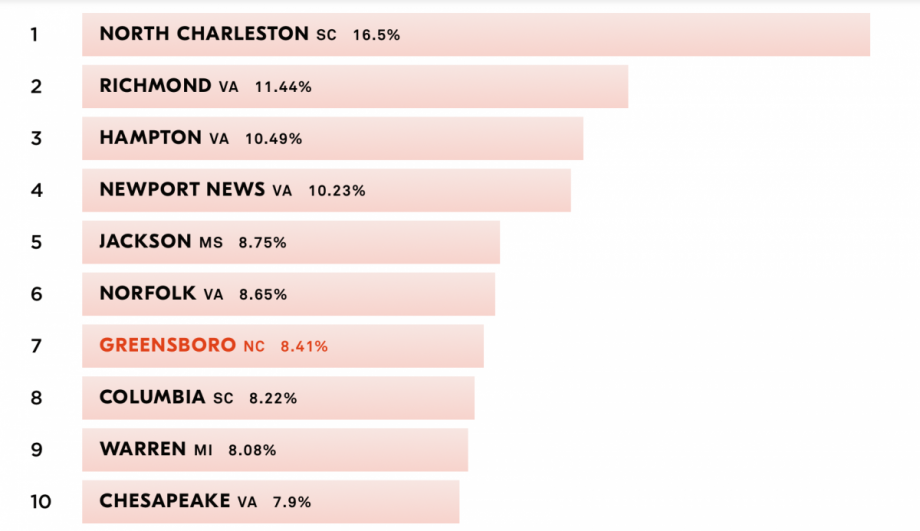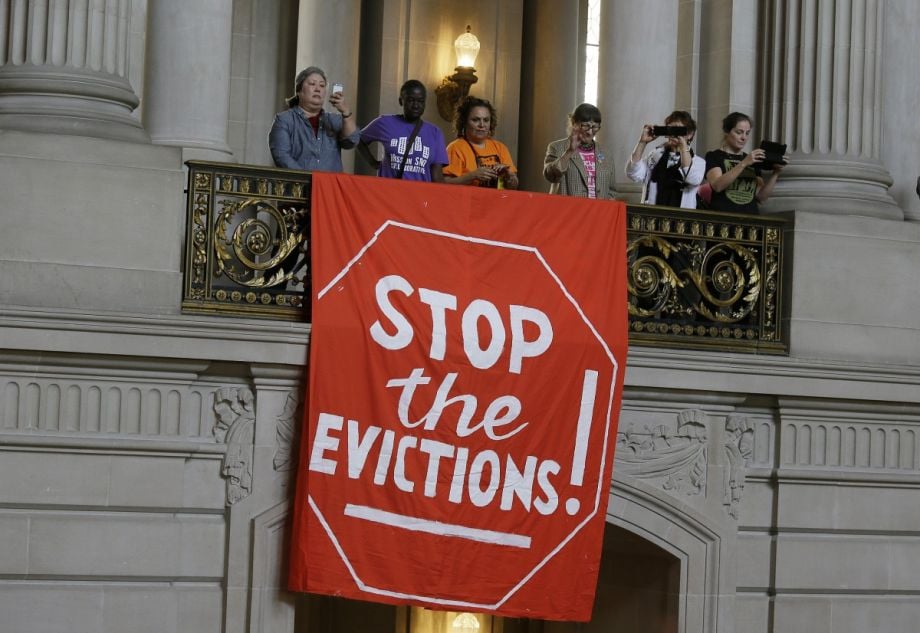Last year, the U.S. Census Bureau promised to start collecting better data on evictions. But policy-makers trying to stem the crisis in cities like New York, Philadelphia, D.C. and Baltimore still rely on a scatter-shot sampling of local figures, surveys and fuzzy national numbers.
But now there is The Eviction Lab, a new project spearheaded by Matthew Desmond, professor of sociology at Princeton and author of “Evicted: Poverty and Profit in the American City.” Desmond’s research could give officials working to address the housing crisis better country-wide data — data they could use to compare city-by-city figures and measure which policies work.
The project is a compilation of about 80 million records related to eviction going back 18 years, including court records and numbers from LexisNexis Risk Solutions and American Information Research Services, Inc. Eviction documents contained information such as the defendant’s address, monetary judgment and case outcome; the team combined those details with demographic census data to “better picture of the areas in which these evictions are happening,” according to the project’s website.
The areas with the highest eviction rates aren’t necessarily the country’s most expensive regions, the New York Times recently noted in its coverage of Eviction Lab. The big cities with the highest rates of eviction include North Charleston, South Carolina; Richmond, Hampton and Newport News, all in Virginia; and Jackson, Mississippi. The number of evictions is rising throughout the Midwest as well, in states such as Michigan and Indiana.

(Courtesy of Eviction Lab)
Several factors, including a legacy of racist policies culminating in state laws that favor landlords over tenants, have shaped Richmond’s high eviction rate of 11.44 percent (that’s 11.44 evictions filed for every 100 renters, compared with 2.34 for every 100 renters nationally). The Times notes in particular that Richmond is “in the Southeast, where the poverty rates are high and the minimum wage is low; it’s in Virginia, which lacks some tenant rights available in other states; and it’s a city where many poor African-Americans live in low-quality housing with limited means of escaping it.”
“This isn’t by happenstance — this is quite intentional,” Levar Stoney, Richmond’s mayor, recently told the Times. Virginia is a state that has favored property owners “since plantation days,” he said, adding that aid to poor residents is limited, and about a quarter of the city’s population is a car repair payment or hospital visit away from not being able to make the median gross rent of $896 a month.
As Next City has covered, eviction tends to disproportionately affect women of color with children. In “Evicted,” Desmond found that in Milwaukee, where he conducted most of his research for the book, 1 in 5 black women reported having been evicted as adults, compared to 1 in 12 Hispanic women and 1 in 15 white women. His research found that having children tripled the odds that a person would receive an eviction judgment.
“If incarceration had come to define the lives of men from impoverished black neighborhoods, eviction was shaping the lives of women,” he wrote. “Poor black men are locked up. Poor black women are locked out.”
Eviction Lab’s research can be viewed here.

Rachel Dovey is an award-winning freelance writer and former USC Annenberg fellow living at the northern tip of California’s Bay Area. She writes about infrastructure, water and climate change and has been published by Bust, Wired, Paste, SF Weekly, the East Bay Express and the North Bay Bohemian
Follow Rachel .(JavaScript must be enabled to view this email address)
















